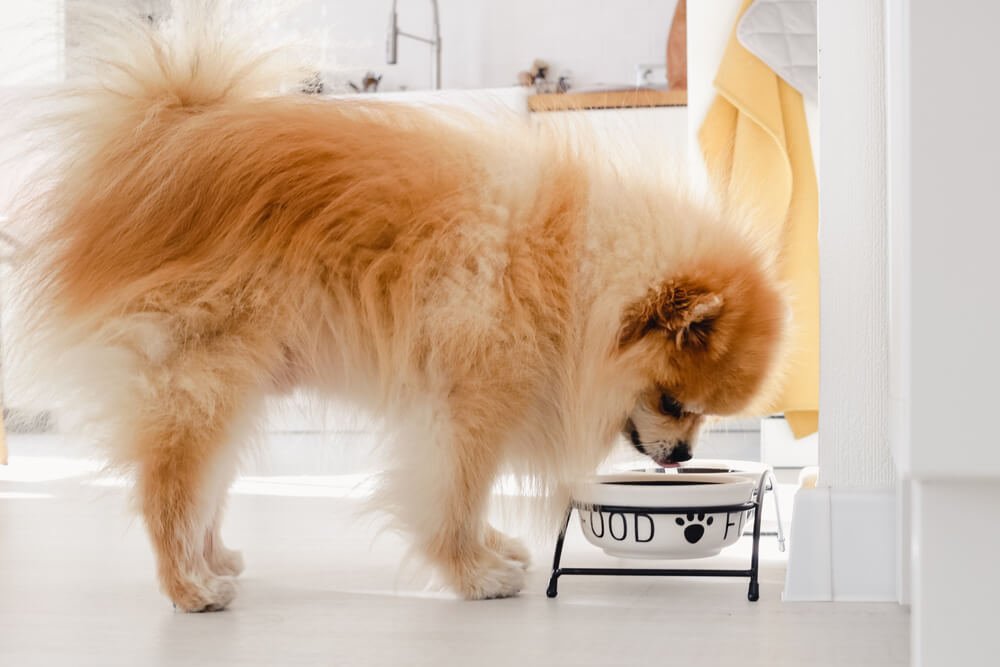
What is pancreatitis in dogs?
Pancreatitis causes swelling and inflammation of the pancreas. There are two types of pancreatitis as some dogs may have a case of acute pancreatitis and some may have chronic pancreatitis. Acute pancreatitis is usually more severe and can come on suddenly. The symptoms of acute pancreatitis typically go away with treatment, whereas dogs with chronic pancreatitis frequently have symptoms that need to be managed. The pancreas is a vital organ that is responsible for variety of roles in the body, such as producing digestive enzymes and insulin so it’s very important that it functions well.
What are the signs of pancreatitis in dogs?
For acute pancreatitis, the signs are very noticeable and require quick treatment. Many dogs vomit repeatedly, which sometimes happens over the course of a few hours and in some cases throughout several days. This is because the pancreas is so inflamed that the digestive enzymes it’s producing overflow into the abdomen, which causes damage to other parts of the body like the intestines, gall bladder, and liver. Other common signs include abdominal pain, diarrhea, dehydration, decreased appetite, and being lethargic. Dogs with chronic pancreatitis can experience the same symptoms, but they’re typically not as severe. With that said, dogs who battle chronic pancreatitis can suddenly develop serious symptoms so make sure you’re keeping an eye on them.
What causes pancreatitis in dogs?

While it can be hard to find the cause of pancreatitis in some dogs, there are cases where it’s easy to determine. If your dog got into the garbage and ingested some table scraps that are high in fat this would be the likely cause of an episode of acute pancreatitis. High blood levels of triglycerides, which is the most common type of fat in the body, is associated with pancreatitis so dogs who are consistently consuming high amounts of fat in their diet are more at risk. Some dogs with chronic pancreatitis also have pre-existing medical conditions such as diabetes, obesity, hypothyroidism and immune-mediated diseases.
How to treat pancreatitis in dogs
About 2 in 3 dogs who have pancreatitis fall into the chronic pancreatitis category, diet is crucial for managing symptoms. Since fatty foods are linked to pancreatitis, dogs with chronic pancreatitis should be on a low fat dog food. Additionally, you need to make sure that they aren’t given any fatty treats or table scraps that are high in fat. Dogs with severe symptoms will be treated with intravenous fluid therapy, appetite stimulants, and medications that prevent vomiting. Some dogs with pancreatitis have insulinomas, which are pancreatic tumors that cause low glucose levels in the blood because they increase insulin production. Feeding a dog food that’s low in carbohydrates can benefit dogs with insulinoma as it helps prevent high peaks in glucose levels.
Why do dogs with pancreatitis need to be fed a low fat dog food?
Since a major role of the pancreas is to produce digestive enzymes, the goal is to reduce the amount of work the pancreas needs to do as this gives it time to heal. Eating high amounts of fat increases the workload for the pancreas and this is why dogs with pancreatitis should be on a low fat diet. While your dog’s food should be low in fat, their body still needs fat to function properly. Their dog food needs to have a variety of fat sources as many low fat recipes are almost missing an entire group of fatty acids. It’s important that the diet is well balanced through quality fats coming from ingredients like human-grade meats, extra virgin olive oil, and cod liver oil.



